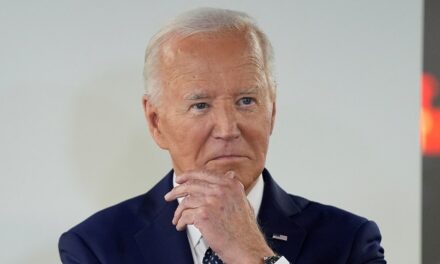In the ever-evolving landscape of American politics, a significant narrative has unfolded following the recent critique from tech magnate Elon Musk regarding the “Big Beautiful Bill,” the ambitious legislative proposal backed by former President Donald Trump and his supporters. This initiative, aimed at bolstering infrastructure and social programs, has sparked both fervent support and heated debate spanning across various political and economic landscapes.
The “Big Beautiful Bill,” a title that embodies optimism and grandeur, seeks to address numerous challenges facing the nation, including but not limited to, highways, bridges, public transport systems, and various social welfare programs. It has garnered substantial attention, particularly among Trump’s base, who view it as a continuation of his vision for a prosperous America.
However, Musk’s recent comments, where he characterized the bill as potentially deleterious to the nation’s financial health, have ignited discussions and debates about the feasibility and implications of such large-scale spending. Musk, known for his direct and often provocative remarks, expressed concerns that the bill could exacerbate the nation’s existing debt issues at a time when fiscal responsibility is increasingly at the forefront of political discourse.
Despite Musk’s assertions, Trump’s supporters have largely dismissed these concerns, rallying behind their leader’s vision for rejuvenating the American economy. They argue that investments in infrastructure and social programs are not merely expenditures but vital contributions toward fostering long-term economic growth and sustainability.
“Investing in our country is not just about the immediate costs,” stated Julie Anderson, a spokesperson for Trump’s campaign. “It’s about creating jobs, stimulating the economy, and ensuring that we have a robust infrastructure that can support future generations.”
Supporters of the “Big Beautiful Bill” emphasize that the benefits of such a significant legislative initiative would far outweigh its costs. They highlight the potential job creation within various sectors, from construction to environmental services, arguing that these opportunities will lead to increased tax revenues that would help mitigate the impacts of any additional debt.
Moreover, advocates for the bill assert that Musk’s worries about debt are somewhat misguided. They argue that the framework of the proposal includes mechanisms designed to curb unnecessary spending while directing funds toward projects that yield substantial economic returns. They believe that infrastructure and social development should be seen as investments rather than mere expenditures.
The atmosphere among Trump’s supporters remains buoyed by the sentiment that government spending in crucial sectors can lead to tangible benefits, including improved quality of life for citizens and enhanced national competitiveness in a globalized economy. These proponents take pride in what they term as necessary bold actions to rejuvenate the American spirit of innovation and resilience.
Many have drawn parallels between the “Big Beautiful Bill” and previous infrastructure efforts that succeeded in transforming the economic landscape, such as the New Deal programs in the 1930s. Historical examples are often cited to contextualize the potential beneficial impacts of this new initiative. Supporters see it as a chance to mirror that era of bold leadership, suggesting that such an ambitious bill could herald a new chapter for America’s economic resurgence.
On the other hand, the criticisms voiced by Musk and various fiscal conservatives reflect a broader concern about the sustainability of the nation’s debt levels. With the federal debt climbing into the trillions, many caution against adding more burdens to an already precarious financial situation. They stress the importance of responsible governance that prioritizes long-term financial health over immediate spending.
Despite these concerns, Trump’s entourage remains undeterred, emphasizing that infrastructure development will inherently generate economic activity, which will contribute to debt reduction in the long run. “A strong economy leads to a strong revenue base. Those who invest in America will see returns in the form of jobs and revenues,” highlighted Governor Rick Scott during a rally supporting the bill.
The pushback against Musk’s scrutiny illustrates the deeply polarized nature of current political opinions on fiscal issues. While some view the tech billionaire’s comments as reflecting a universally applicable concern rooted in fiscal conservatism, Trump supporters view them as an obstacle to progress, dismissing the notion that caution should halt ambitious initiatives.
Moreover, Trump’s supporters argue that the narrative surrounding fiscal responsibility has often been weaponized against ambitious projects. They urge a reevaluation of what constitutes responsible spending, suggesting that investments in the nation’s future should not be stymied by short-term fears of debt. They call for a reassessment of priorities that centers public investment as a catalyst for broader economic advancement.
As various factions within the political landscape continue to dissect the implications of the “Big Beautiful Bill,” it remains clear that the discussion about fiscal responsibility versus strategic investment will remain a pivotal theme in the upcoming political cycles. With both Musk’s critique and the continuing support for Trump’s initiatives, the dialogue surrounding American economic policy is expected to intensify in the months leading to crucial election seasons.
Supporters of the bill are utilizing this moment as a rallying cry, urging constituents to recognize the need for a transformative approach to governance that promotes growth and innovation. They emphasize that the future well-being of the nation hinges on prioritizing comprehensive plans that not only tackle existing infrastructure challenges but also invest in the health and prosperity of communities across the nation.
As political strategists gauge the public’s reception of such initiatives, the upcoming debates and discussions will likely shape the contours of legislative action moving forward. Both supporters and critics will need to navigate the intricate balance between promoting immediate investment needs and addressing longer-term fiscal sustainability as the nation charts its course ahead.
The coming weeks are expected to be crucial as stakeholders, analysts, and political figures assess the impact of the ongoing conversations surrounding the “Big Beautiful Bill.” With Trump’s advocates remaining steadfast in their defense, it remains to be seen how this controversy will evolve and influence broader policy discussions in the American political sphere.
































